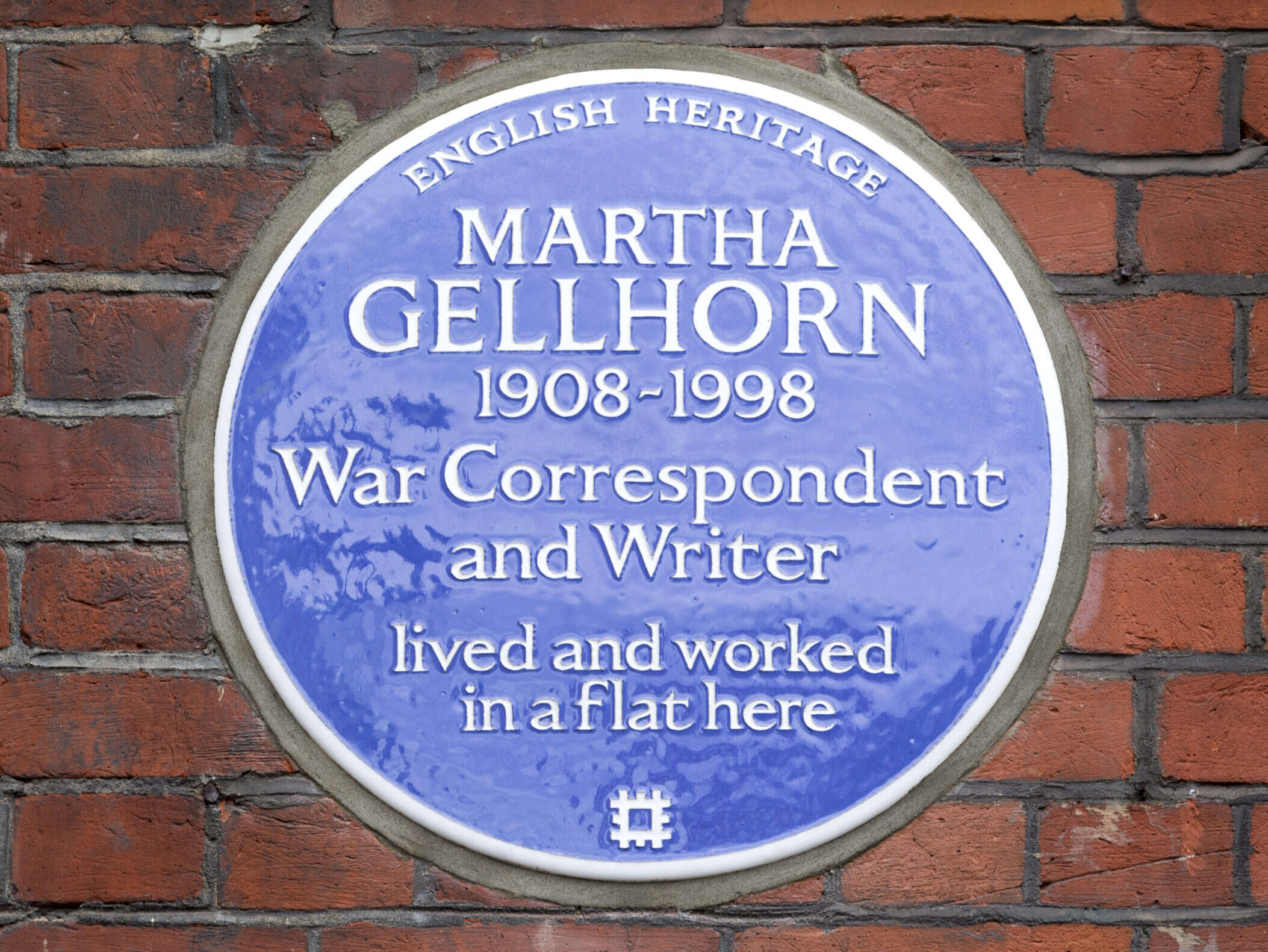
Pioneering war correspondent Martha Gellhorn has been honoured with a blue plaque outside her London home, where she lived for 28 years before taking her own life in 1998.
Gellhorn, who reported over a lengthy career on conflicts from the Spanish Civil War to the Vietnam War, used to entertain friends and admirers at the top-floor flat in Cadogan Square, Knightsbridge.
BBC’s John Simpson, who knew Gellhorn, said: “This place is important because it’s where she dispensed wisdom, sharpness of understanding – and Famous Grouse whisky – to generations of writers and journalists who came here to learn from one of the most perceptive observers of her time.”
Some of Gellhorn’s most famous reports were compiled in a book titled Face of War, a copy of which was carried by Sunday Times war reporter Marie Colvin who cited Gellhorn as an inspiration.
Blue plaques are awarded by English Heritage and Gellhorn’s is the first in the UK to say “war correspondent” on it.
Gellhorn was born in Saint Louis, Missouri, in 1908 and gained renown for her coverage in 1934 of the effects of the Great Depression in the US.
Three years later she reported on the Spanish Civil War – which had drawn intellectuals and writers in the fight against fascism – as a partisan journalist on the side of the Republican faction.
During the Second World War she ignored American military restrictions on female war correspondents, stowing away on a hospital ship to gain a first-hand account of the Allied invasion of France in 1944.
Gellhorn spent the rest of the war filing from various front lines. Among her works of fiction is The Wine of Astonishment (1948), written in response to the Dachau concentration camp and her visit shortly after its liberation.
In 1996, 20 years after covering her last conflict, Gellhorn’s opposition to the Vietnam War saw her return to the theatre of war to write about its effects on civilians in the country.
In her later years she was was diagnosed with cancer and was nearly blind. She died in February 1998, aged 89, in London. Her body was found by the writer Victoria Glendinning.
Glendinning said Gellhorn was “a woman who was afraid of nothing and nobody”, adding: “Though she held her convictions with passion, she had no self-conceit and would I think be amazed by [the blue plaque] celebration.”
Picture: English Heritage
Email pged@pressgazette.co.uk to point out mistakes, provide story tips or send in a letter for publication on our "Letters Page" blog
